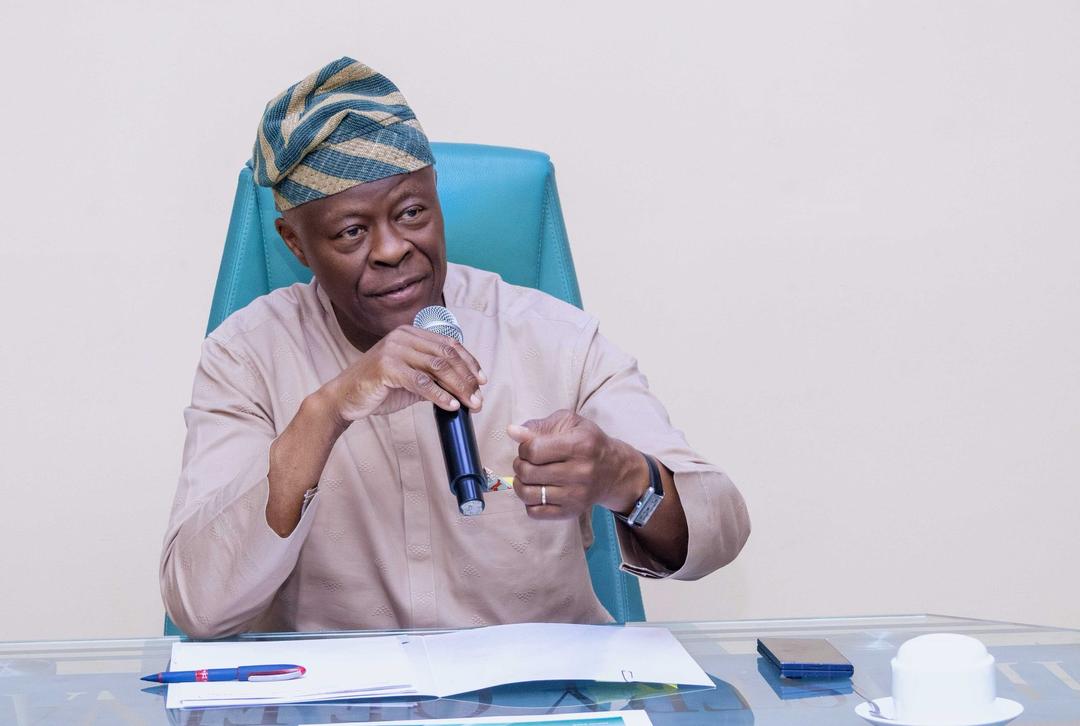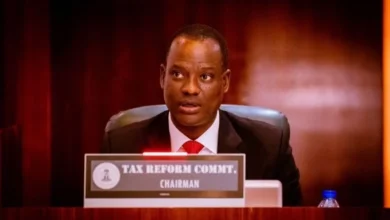
Nigeria is well positioned to weather the economic ripple effects of the sweeping tariffs announced last week by the United States, including on imports from Africa’s largest economy, according to Wale Edun, Nigeria’s finance minister and coordinating minister of the economy.
In remarks delivered Monday at a corporate governance forum convened by the Ministry of Finance Incorporated (MoFI) in Abuja, Mr. Edun acknowledged that while the tariffs — announced on April 2 by President Donald J. Trump — exclude oil and mineral imports, they may still exert downward pressure on global commodity prices, including crude oil, Nigeria’s primary export.
Despite these headwinds, Mr. Edun argued that Nigeria remains “relatively insulated,” citing early structural reforms and a shift in strategy that has prioritized revenue diversification and private-sector participation.
“To mitigate the risk of revenue shortfalls, we are ramping up non-oil revenue mobilisation through the Federal Inland Revenue Service and the Nigeria Customs Service,” he said. He also pointed to plans for budget realignment, targeted expenditure, and what he described as “innovative, non-debt financing strategies.”
Mr. Edun noted that Nigeria has maintained a trade surplus with the United States for three consecutive years, from 2022 through 2024. “The effect of the tariffs on our exports is negligible, so long as we maintain oil and mineral export volumes,” he said. Still, he warned of the indirect impact from a potential slump in global oil prices and said the government was intensifying efforts to raise crude oil output.
Nigeria’s Shift Toward Private Investment
Beyond short-term responses to trade disruptions, Mr. Edun framed the country’s broader economic strategy as one defined by structural transformation. “The government accounts for just 10 percent of GDP,” he said. “The private sector owns the remaining 90 percent, and our model is evolving accordingly — toward equity-based financing, asset optimisation, and private-led growth.”
He credited the Tinubu administration with stabilising macroeconomic fundamentals, noting that inflation was showing signs of easing, energy and food prices were beginning to moderate, and GDP grew at a steady 3.84 percent in the final quarter of 2024.
“These gains have been achieved through a disciplined mix of fiscal and monetary policies,” Mr. Edun said. “Even before this retreat from a rules-based global trading system, Nigeria had already begun pivoting away from debt dependence.”
He highlighted recent efforts to attract private capital into infrastructure, citing the Highway Development and Management Initiative (HDMI) as a flagship example. “The Benin-Asaba Expressway is now under private management, cutting travel time from four hours to just one,” he said, adding that nearly 1,000 kilometers of roads have been earmarked for private-sector investment.
Governance, Privatisation, and Global Partnerships
Mr. Edun also underscored the government’s efforts to improve the governance of state-owned enterprises, describing corporate transparency and performance as essential to attracting investment. The proposed 2025 national budget, he confirmed, already includes a provision for privatisation, with potential for expansion depending on fiscal conditions.
“With a stable macroeconomic environment, a reform-oriented government, and a more attractive exchange rate regime, Nigeria is open for business,” he said. “We’re inviting global partners to invest, produce, and grow with us.”
Development partners, including the World Bank, continue to play a supportive role. But Mr. Edun was quick to emphasise the importance of domestic policy discipline, especially in building the institutional foundations for sustained investment.
Ndiame Diop, a former World Bank country director for Nigeria and now the regional vice president for Africa, also addressed the forum. He urged the government to accelerate reforms aimed at increasing transparency in state-owned enterprises, which he said is crucial for improving the federal revenue share and public trust.
“To realise the full benefits of ongoing reforms, strong corporate governance is essential,” Mr. Diop said. “This must be anchored in global best practices and consistent commitment.”
Armstrong Takang, managing director of MoFI, echoed this view, describing corporate governance as a cornerstone for long-term growth. The agency’s corporate governance scorecard, he said, is designed to align public enterprises with both local regulations and international benchmarks.
“We need these entities to operate efficiently, grow sustainably, and contribute meaningfully to national development,” Mr. Takang said.





